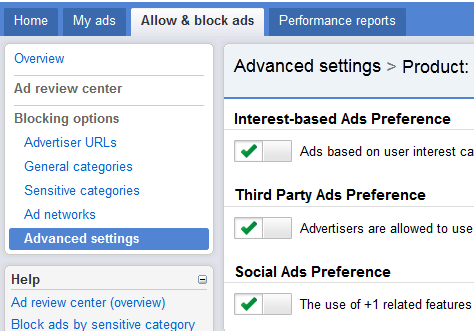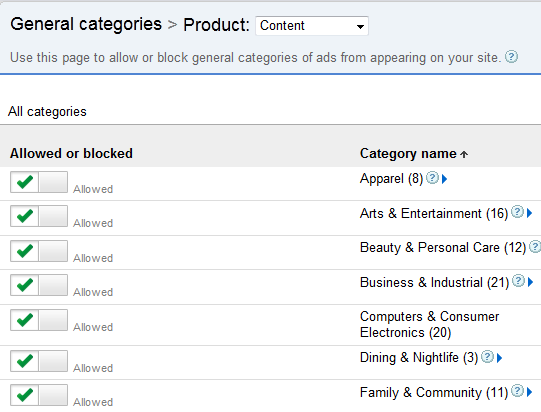Smart pricing occurred if your CPC suddenly and drastically reduced in your Adsense account. So if you have been making an average of $1.00 per click for an extended period of time, and suddenly you start making only $0.05 a click for an extended period, your adsense account may have been smart priced.
I want to discuss with you today why your website get smart priced and how to avoid getting smart priced.
In order to fully understand what “smart pricing” is, you need to understand the advertisers point of view. The ads being displayed on your site via Google Adsense come from individual advertisers bidding on relevant keywords. Google’s primary income is derived from these advertisers so they are VERY concerned with the satisfaction of these advertisers. Therefore, if the clicks that these advertisers get from your site are NOT CONVERTING into sales on their website, they will stop advertising.
If they stop advertising, Google loses money.
So, in order to keep the advertiser “in the game” Google will drastically reduce the cost that these advertisers have to pay on websites that are not converting into sales for the advertiser. This reduction means less money for you from Google Adsense clicks. In other words, if your website is not performing well for advertisers, you are at risk of getting “smart priced.”
Rather than take my word for it, I suggest you read up on what Google has to say on the subject. Read here for a perspective from the Google Adwords site: What is Smart Pricing? Read here from a perspective from the Google Adsense side: The Facts About Smart Pricing and here:About Smart Pricing.
So, there is often a lot of rumors, mystery, and anger in the internet marketing forums and community surrounding smart pricing, but in a nutshell if you have targeted, relevant, and quality websites – you probably don’t have much to worry about. I am going to discuss in detail how to avoid smart pricing. In addition, if your account has been smart priced, it can be reversed! Just follow the guidelines below.

Overall, I have been using Google Adsense for about 7 years now, and I have never been smart priced for an extended period that I am aware of. I have seen drops in bids from time to time, but I think this is more of a reflection of actual advertiser bid amounts. Overall, my guess is that its not an extremely common occurrence; however, the following steps should help keep your CPC (cost per click) as high as possible in your Adsense account.
Essentially, the primary reason that Google will reduce the amount you get paid per click is that the ads on your site are not producing results for advertisers. This is stated very clearly in the 3 articles I linked to above from both Google Adsense and Google Adwords. Obviously, how effective the advertiser is at writing ads, how optimized their landing pages are, and other factors out of your control will effect conversion rates. However, Google will not penalize you for poorly written ads or other things that you can’t control.
They have huge amounts of data and are surely comparing how your site performs against how other Google Adsense sites are performing with the same advertisements. If your site is performing much worse than comparable Adsense sites, then you are likely to get smart priced.
However there are things in your control. You can control:
- The source of traffic to your site,
- How relevant and targeted your content is,
- Your click through rate,
- and to a degree – How relevant your ads are.
Natural search engine traffic converts best!
I have always built my sites so that they rank well in the search engines and this is ALWAYS my primary source of traffic. However, if you are driving traffic to your site using other means like forums, emails, blog comments, or other methods, its very likely that your visitors will be less targeted. Visitors that just happen upon your site are less likely to convert than visitors that actively search and find your site based on relevant content. Here is another article that talks about the importance of search engine traffic in relation to smart pricing.
If you are like me and build sites that target specific keywords and rank in Google for those keywords, then you are probably already getting traffic from the search engines and likely have little to worry about. This is why keyword research is both the most important and most difficult part of building niche websites.
If you are getting traffic from multiple sources, you may want to consider only showing Adsense ads to visitors coming from Search Engines. I have personally never done this, but through my research I found out there are a few different WordPress plugins that allow you to only show ads to search engine traffic. I haven’t used any, so I can’t provide an honest review of any, but you can start your research right here on a few of them.
Sure relevant and targeted content seems obvious, but some sites struggle with this. I have always taught that for niche sites, you need to be very strict in your keyword choice and target ONE specific keyword primarily on your site. Yes, you can and should also target secondary keywords – but these are also targeted. Picking a specific keyword that you have researched allows you to then created relevant content. Not only will relevant and targeted content related to a specific keyword make you rank better in the search engines; it will also ensure that you don’t get smart priced on Google Adsense.
Sure relevant and targeted content seems obvious, but some sites struggle with this. I have always taught that for niche sites, you need to be very strict in your keyword choice and target ONE specific keyword primarily on your site. Yes, you can and should also target secondary keywords – but these are also targeted. Picking a specific keyword that you have researched allows you to then created relevant content. Not only will relevant and targeted content related to a specific keyword make you rank better in the search engines; it will also ensure that you don’t get smart priced on Google Adsense.
For example, someone’s random personal blog that rambles about their day to day life where they happen to mention the keyword “blendtec blender review” in the middle of their discussion aboutmaking smoothies with their Uncle Billy is MUCH LESS LIKELY to convert a visitor into a sale than a niche site targeting “blendtec blender review” with researched and targeted articles. So, the random blog might get the same adsense ad about “blendtec blenders” as the niche site – but the niche site is MUCH more likely to get visitors that are primed and ready to click on the ad and then actually buy the blender.
Google specifically mentions that CTR (click through rate) does not affect smart pricing decisions. However, Court Tuttle specifically mentions that increasing his CTR (by removing adsense from low CTR sites) reversed the smart pricing on his account. So, which is true?
Well, both articles are actually a few years old, so the articles I linked to directly from Google earlier are likely the best source of information. Its important to know that advertisers actually are rewarded by Google (with higher Quality Scores) when they have ads that get clicked more (higher CTRs). So, optimizing the ad placement on your site (without overdoing the above the fold ads) is actually a good thing from both advertisers perspective and Google’s pocket book.
So, while I think improving CTR is a good thing, I don’t think it has much to do with smart pricing. Its likely that Court Tuttle happened to remove the adsense ads from his poor converting sites (which just happened to also be his low CTR sites) and therefore reversed the smart pricing.

No, you can’t control the ads placed on your site directly. However, you can change how targeted and how good the content is on your site. So, by doing a few simple things like using buying keywords/targeted keywords in the title of your articles and using relevant keywords throughout your articles; you are more likely to get the ads that are the most targeted on your site.
Without using the keywords properly on your site, you are much less likely to get the relevant ads that produce results on your sites.
However, there is another step to make sure you are getting the most relevant ads on your site. You can use the Allow & Block Ads option within the Adsense account. I would recommend leaving these in their default settings UNLESS you are certain that you have been smart priced. At that point, I would recommend experimenting with some of these options to try and get your click values back up.
You can turn off Interest-based Ads Preference, Third Party Ads Preference, and Social Ads Preference under the Advanced settings. Google Adsense is highly complex and this would take an entire post of its own to do these settings any kind of justice; but essentially these allow you to control the types of ads and the source of those ads that are shown on your site.
You can get even more specific by blocking entire categories of ads as well. Before you start turning off all the categories that don’t fit with your website though, you have to consider that Google has a complex formula built in that shows re-targeted ads to users who may have been searching for something other than what is on your site in the past.
So, Google might shows ads related to “BBQ grills” to a visitor who recently searched for BBQ grills even though they are on your site that is about “remote control helicopters”. Google’s re-targeting formula has calculated that this visitor is likely to click on ads related to “BBQ Grills” due to their past searches. So, its not an easy decision to determine which categories or ads to turn off. This is why I highly recommend leaving the defaults in place unless you are 100% certain you have been smart priced. And even then, I would only change any settings after you have optimized your sites based on recommendations given above.

Another option you can try to reverse the smart pricing on your Adsense account is by removing ads from poor performing websites. Of course, its impossible to know which of your sites is performing poorly as far as advertiser’s conversion is concerned, but you can certainly test. If you only have a few sites, I would recommend removing adsense from one of your sites and leaving it on your other sites and see what happens. By testing sites one at a time by removing Adsense, you may be able to isolate which site is the under-performer.
As mentioned above, some have claimed that removing Adsense ads from low CTR sites has reversed the Google smart pricing effect; however, its much more likely that these also happened to be the low converting sites for the Adsense advertisers.
 |
| Add caption |
Overall, Smart Pricing is so much less likely to occur if you are doing proper keyword research, building relevant content, and deriving most of your traffic from the search engines. I have never had to deal with any severe penalties with smart pricing and I don’t believe that it is an extremely common occurrence for those getting most of their traffic from the search engines. However, if your Google Adsense account ever is effected by Smart Pricing, I hope that these guidelines above will be useful.
Do you have any experience with smart pricing? Do you have any comments to add? Overall, please leave your thoughts below as I’d love to continue discussing the subject and hearing from your experience as well.









